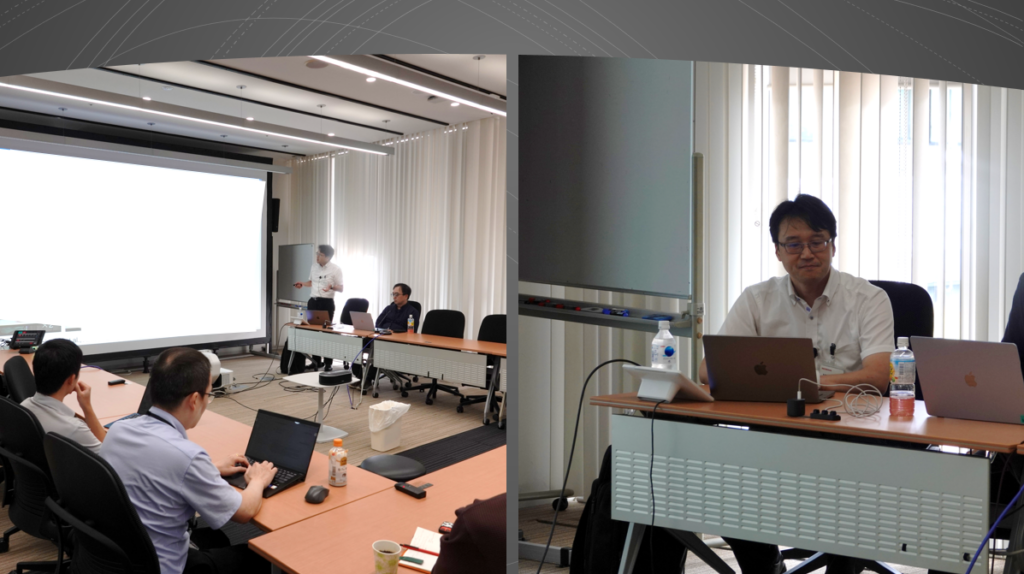【KAIWA】 Special Keynote Event by an External Expert
Share
September 24, 2025
We are pleased to report that special lecture event “KAIWA”, inviting external experts to our Wako office, was held for the purpose of acquiring diverse perspectives and knowledge on new fields.

Guest Speaker:
Name: Takufumi Yanagisawa
Affiliation: Professor, the Department of Neuroinformatics, Osaka University Graduate School of Medicine, Department of neurosurgery
https://researchmap.jp/takufumi
https://www.med.osaka-u.ac.jp/archives/41799
Title of the talk:
"Neural decoding, Neurofeedback and Brain-Machine Interface"
Abstract:
Brain–machine interfaces (BMIs) have evolved into a powerful platform for both therapeutic intervention and disease research. This presentation highlights our translational studies that bridge neural decoding, neurofeedback, and minimally invasive electrode technologies.
We first demonstrate that MEG- and EEG-based BMIs can induce cortical reorganization and significantly reduce phantom limb pain, with randomized controlled trials confirming clinical benefits. We further extend these approaches to augmented reality systems, enabling portable BMI training for daily application.
Beyond pain therapy, we apply neural decoding techniques to large-scale EEG datasets to extract disease-related neural features in a data-driven manner. Among various neurological disorders we study, including epilepsy and Parkinson’s disease, we particularly emphasize dementia. Multi-center studies show that resting-state EEG combined with deep learning achieves high accuracy in dementia classification, and novel EEG biomarkers such as dynamic mode decomposition and phase–amplitude coupling further highlight the potential of this approach as a non-invasive and accessible alternative to costly diagnostic tools.
Finally, we introduce intravascular thin-film electrodes that enable minimally invasive measurement and stimulation of brain activity, accessing cortical and deep venous structures with unprecedented spatial resolution. Together, these studies illustrate a translational pipeline that connects neural decoding, neurofeedback, and minimally invasive electrode technologies. This integrative strategy paves the way toward practical, accessible, and socially impactful BMIs for communication, rehabilitation, and neurological disease diagnosis.
Professor Yanagisawa presented BMI research, showcasing applications from phantom limb pain treatment to dementia diagnosis and the integration of EEG and minimally invasive electrode technologies for practical and socially impactful medical solutions.”
